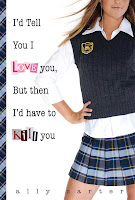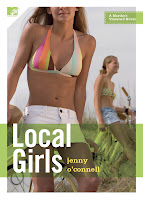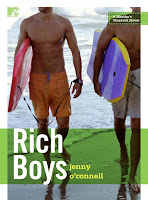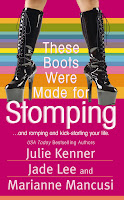STATUS: It’s been a bit of a long day. Right now I’m just reading as I’m still a bit behind on client material and requested manuscripts. I don’t think it’s actually possible to get ahead so a perpetual state of being behind is pretty much normal.
What’s playing on the iPod right now? ALL I WANT by Toad The Wet Sprocket
Basically the conversation about whether to publish a debut in original trade pb versus hardcover relates to literary fiction or commercial literary fiction.
Why? Because there are many genres where original trade or even mass market publication for a debut is widely acceptable and the issues of support really aren’t in question.
For example, publishing romance, thriller, and debuts in SF&F often happen in the mass market version without too many blinks of an eye. In fact, in these genres, it’s often a reverse process. An author can start in mass market and move “up” to trade or hardcover.
For those of you who are confused, mass market is the pocket size publication of a work. Trade paperback is the same size as a hardcover (for the most part) but simply has a soft cover rather than the hard (and a lower price point).
Lots of terrific women’s fiction and commercial mainstream projects are published as original trade pbs and work great.
The trick is deciding about a debut in the literary realm. Do you go for hardcover with all the “prestige,” the marketing/pr backing and the reviews (but the higher price point—which lots of readers perceive as too high) or do you go for the trade pb? Right now there are still vestiges of reluctance to fully support an original trade pb in this realm.
Thus the dilemma. Forgo the higher price point and the stronger royalty percentages to satisfy reader desires (and if you do the math, authors earn less money with trade pb until the tipping point), or go for the hardcover, get more support and have a higher chance of earning out that advance (or the greater risk of failure if it doesn’t work).
See the issue?
Now I think publishing is evolving because so much good new literary stuff is coming out in original trade pb and succeeding but yet, there are still these hesitations (as the failures loom greatly)—and for good reason.
If we are going to revolutionize the industry and move more to this format (which I’m certainly not opposed to), then let’s re-examine all the facets of it—including the marketing/pr, the print runs, the royalty structures, and gasp, even maybe the advances paid for works that will be pubbed in original trade pb.
I’m lobbying for a holistic approach to the question—rather than simply examining individual facets. Publishing, traditionally, doesn’t work this way. By examining recent history, this is not a nimble industry which makes it interesting for agents to navigate and thus why the BEA panel was so fascinating to attend.

.jpg)
.jpg)
.jpg)




